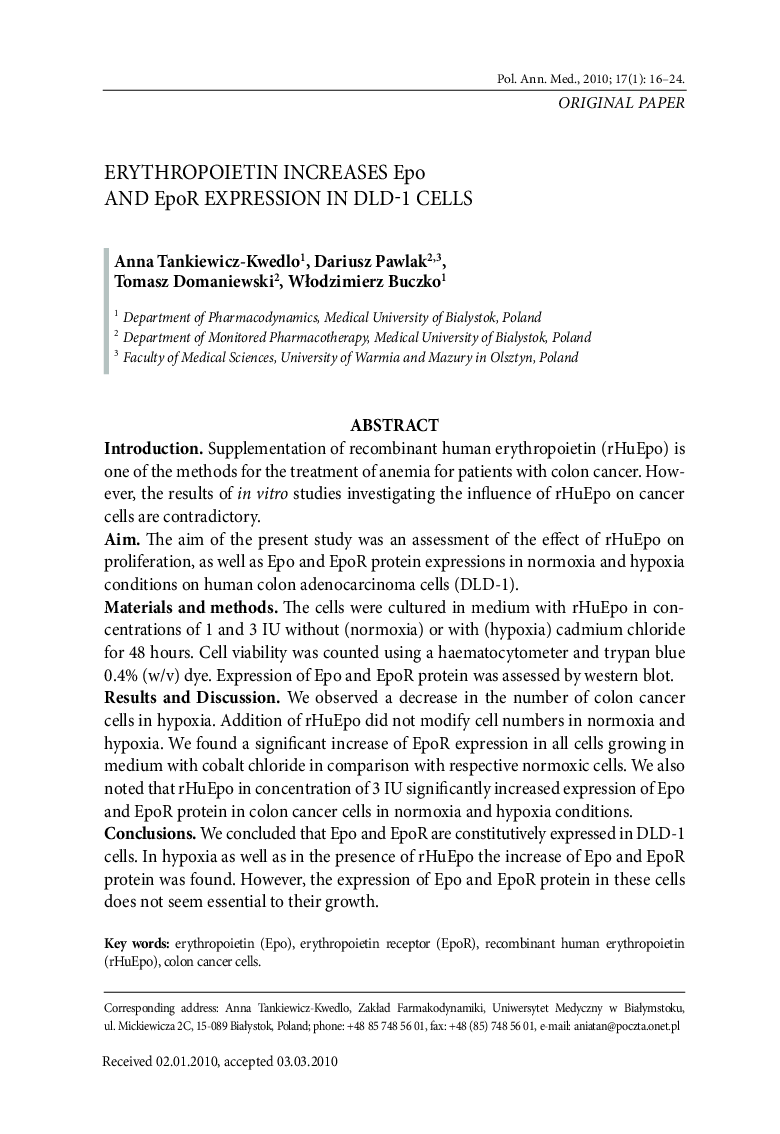| Article ID | Journal | Published Year | Pages | File Type |
|---|---|---|---|---|
| 2678955 | Polish Annals of Medicine | 2010 | 9 Pages |
IntroductionSupplementation of recombinant human erythropoietin (rHuEpo) is one of the methods for the treatment of anemia for patients with colon cancer. However, the results of in vitro studies investigating the influence of rHuEpo on cancer cells are contradictory.AimThe aim of the present study was an assessment of the effect of rHuEpo on proliferation, as well as Epo and EpoR protein expressions in normoxia and hypoxia conditions on human colon adenocarcinoma cells (DLD-1).Materials and methodsThe cells were cultured in medium with rHuEpo in concentrations of 1 and 3 IU without (normoxia) or with (hypoxia) cadmium chloride for 48 hours. Cell viability was counted using a haematocytometer and trypan blue 0.4% (w/v) dye. Expression of Epo and EpoR protein was assessed by western blot.Results and DiscussionWe observed a decrease in the number of colon cancer cells in hypoxia. Addition of rHuEpo did not modify cell numbers in normoxia and hypoxia. We found a significant increase of EpoR expression in all cells growing in medium with cobalt chloride in comparison with respective normoxic cells. We also noted that rHuEpo in concentration of 3 IU significantly increased expression of Epo and EpoR protein in colon cancer cells in normoxia and hypoxia conditions.ConclusionsWe concluded that Epo and EpoR are constitutively expressed in DLD-1 cells. In hypoxia as well as in the presence of rHuEpo the increase of Epo and EpoR protein was found. However, the expression of Epo and EpoR protein in these cells does not seem essential to their growth.
